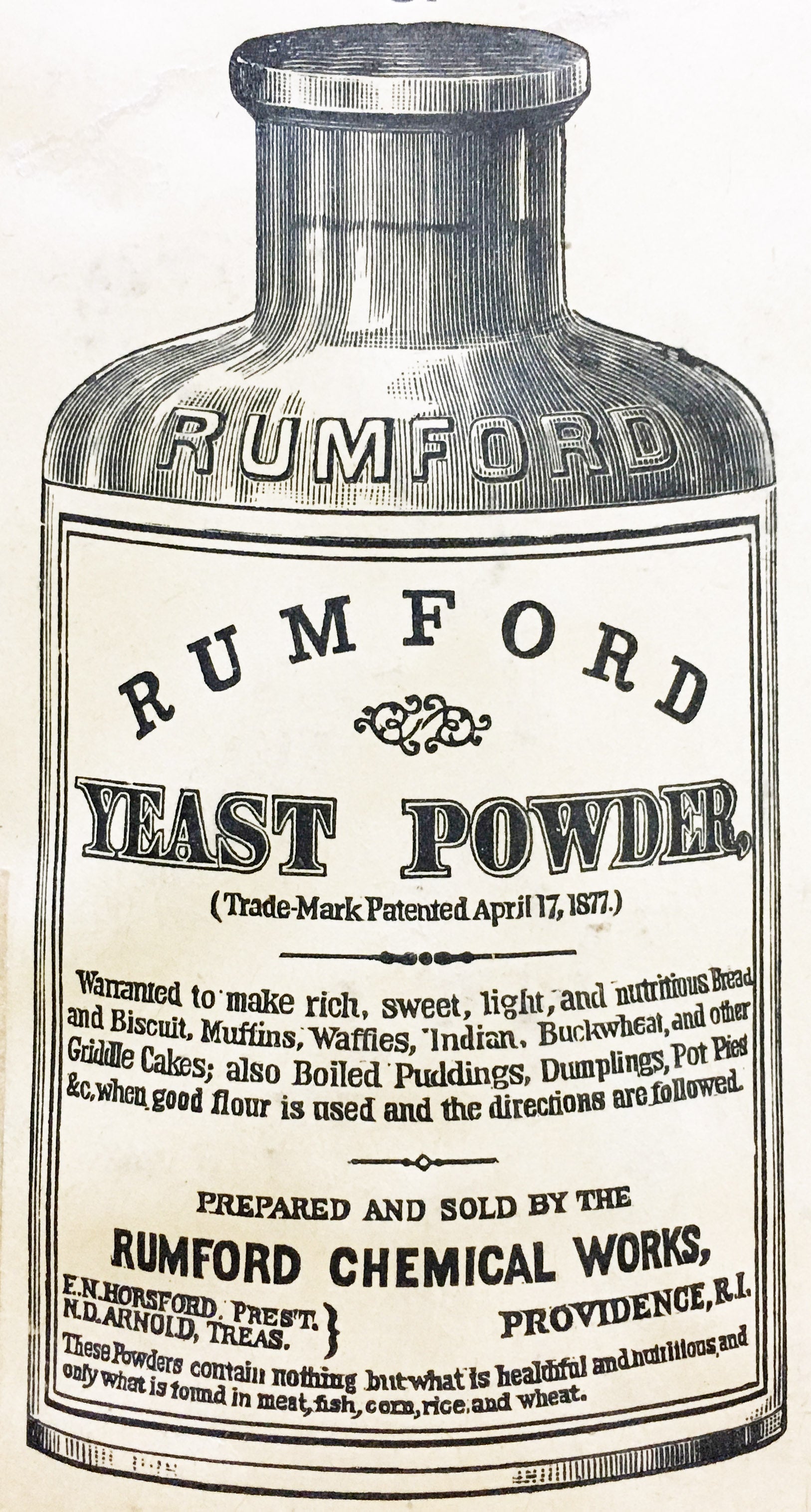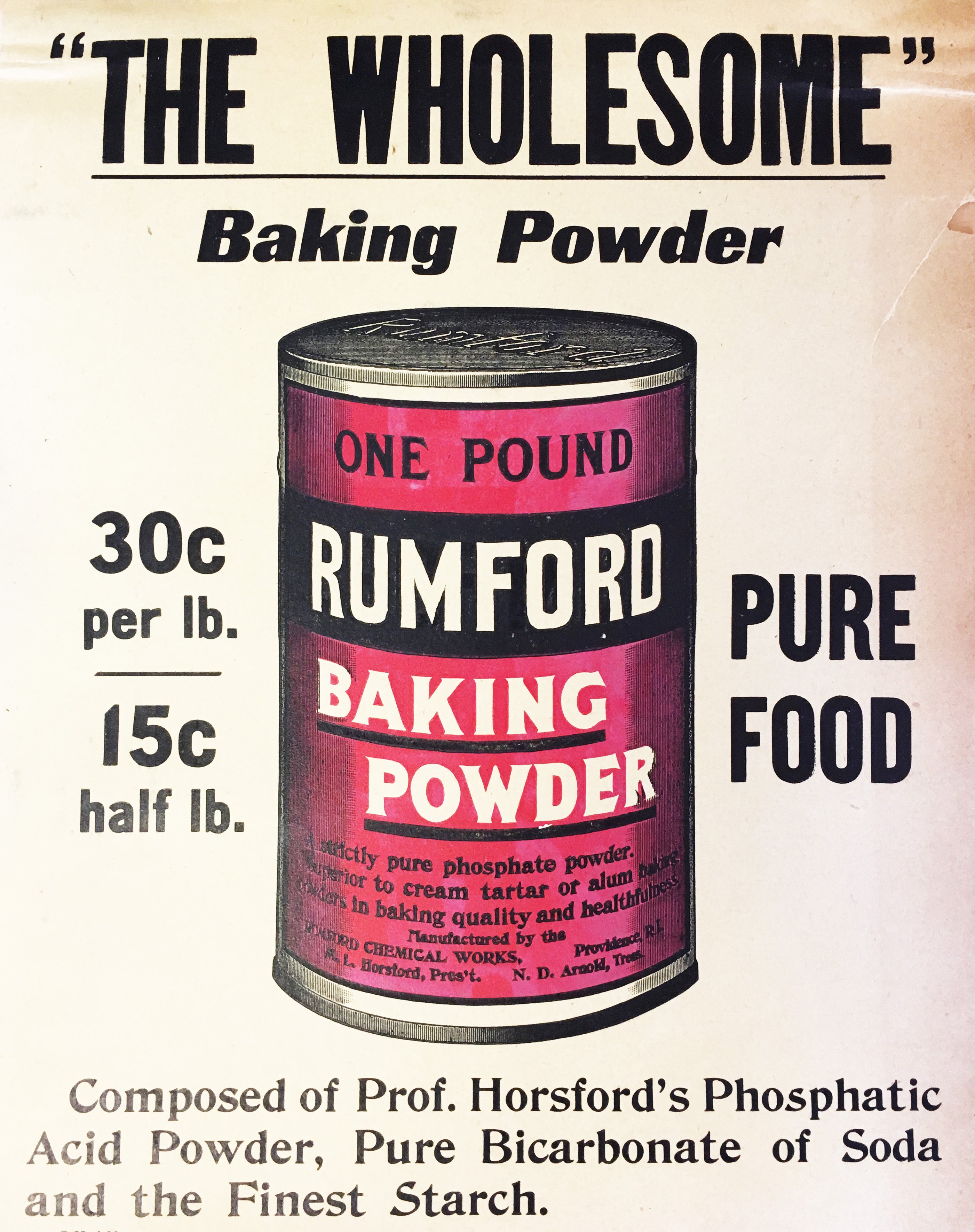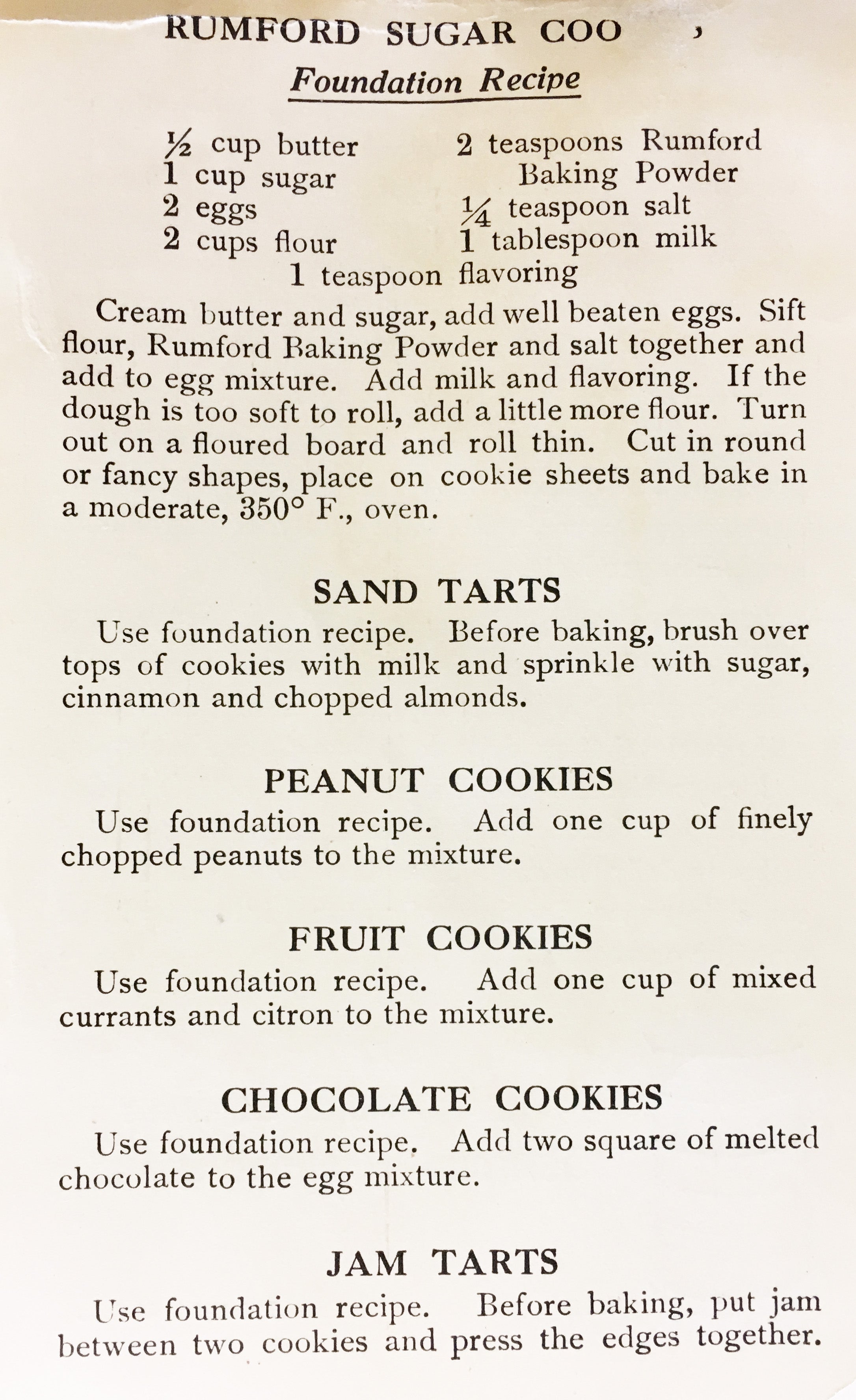October is National Cookie Month as well as American Archives Month, therefore baking powder is the perfect topic for a post. While Library and Archives staff came up with their favorite recipes to share with the Rensselaer Community, I recalled an important collection in the Archives regarding Rumford Chemical Works, thus making the unique possibility of uniting cookies and archives a reality.
I, personally, have always taken baking powder for granted. Why not? The first cake I ever baked came out of a Pillsbury box. “From scratch” wasn’t in my milieu at the age of 10 when I wanted to try my hand at baking. I didn’t really get a good sense of baking ingredients until much later when my girlfriends and I would stay up late on the weekends and bake Nestle’s Toll House Cookies! Even then, ingredients were taken for granted, and I certainly didn’t contemplate baking powder. Until now. 
Rumford Chemical Works opened in 1854 in Seekonk (now East Providence), R.I. by the able partnership between Eben Norton Horsford (RPI Class of 1838), the civil engineer turned chemist and George Wilson, a school teacher with a penchant for business. The main product to be manufactured was Horsford’s “Rumford Yeast Powder.” This new yeast powder reached its ultimate form in 1859 with Horsford’s new and improved baking powder which consisted of calcium phosphate. To be sure, Horsford did not invent baking powder – he revolutionized it! Horsford’s “Rumford Baking Powder” changed the look and taste of baked goods. 
This Thing Called Baking Powder: There were three kinds of baking powder. They all had one purpose, to leaven batter or dough. All three had cornstarch and bicarbonate of soda. One had alum, another had cream of tartar (both left an aftertaste and had a laxative effect). Horsford’s calcium phosphate though, was tasteless and made the end product fluffy. Plus, Horsford’s baking powder solved the supply problem of cream of tartar which came from Europe where price fluctuations depended on the grape harvest.
Cookies in the Archives: The majority of the Rumford Chemical Works collection is patents and correspondence, but I went straight for the scrapbooks, intrigued with the diligent marketing campaign that spans 75 years of the company's history. I was especially looking for their contribution to promoting the cookie. It appears that their marketing campaign was certainly meant to hook every single grocer and consumer (man, woman, and child). Imagine my excitement when I came across the Rumford Company nationwide radio talk show advertisement. This flyer lists every radio station throughout the country offering the topic entitled “When Cookies Go to School.” The show was scheduled for October 9, 1931 and aired in Albany, NY on WOKO.
The radio show focused on "The Standard Cookie Recipe" (aka the "Rumford Cookie"), which was their basic recipe and all other cookie recipes were variations on this. No surprise really, more emphasis was placed on baked goods that would rise to be fluffy and light like cakes, muffins and biscuits. The cookie can sort of fend for itself since a lot of cookie recipes don't require baking powder. 
The Rumford company distributed countless recipes they used to promote their baking powder. From peanut brittle to meatloaf to pudding, everything, according to the company required baking powder. They didn't get too creative with their cookie recipes though. In order to sell baking powder to promote the cookie, their ad's were targeted for the children. The reverse of the cookie recipes above states "If mother does not have any [Rumford Baking Powder] in the house, ask her to get you some. She will be delighted with the fine Cookies you can make with this powder."
Nevertheless, we must recognize Eben Norton Horsford for his diligence back in the 1850's. He even left his position as Professor of Chemistry at Harvard University in order to dedicate his time to "this thing called baking powder."
Thanks Eben, I am no longer taking baking powder for granted!

Comments
Hi, Jen - Thank you for submitting such an interesting piece of RPI history.
In reply to by egglel
Thank you Linda - this was truly, a fun post to research and write up!